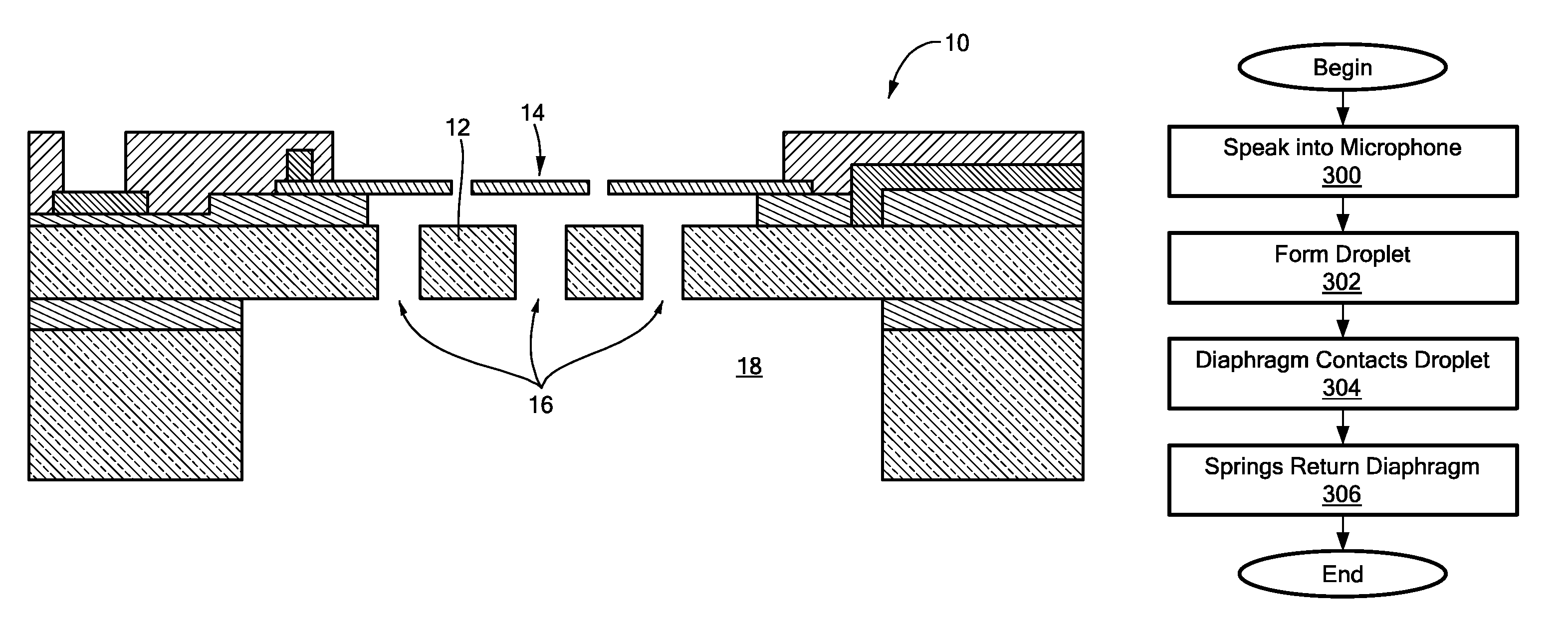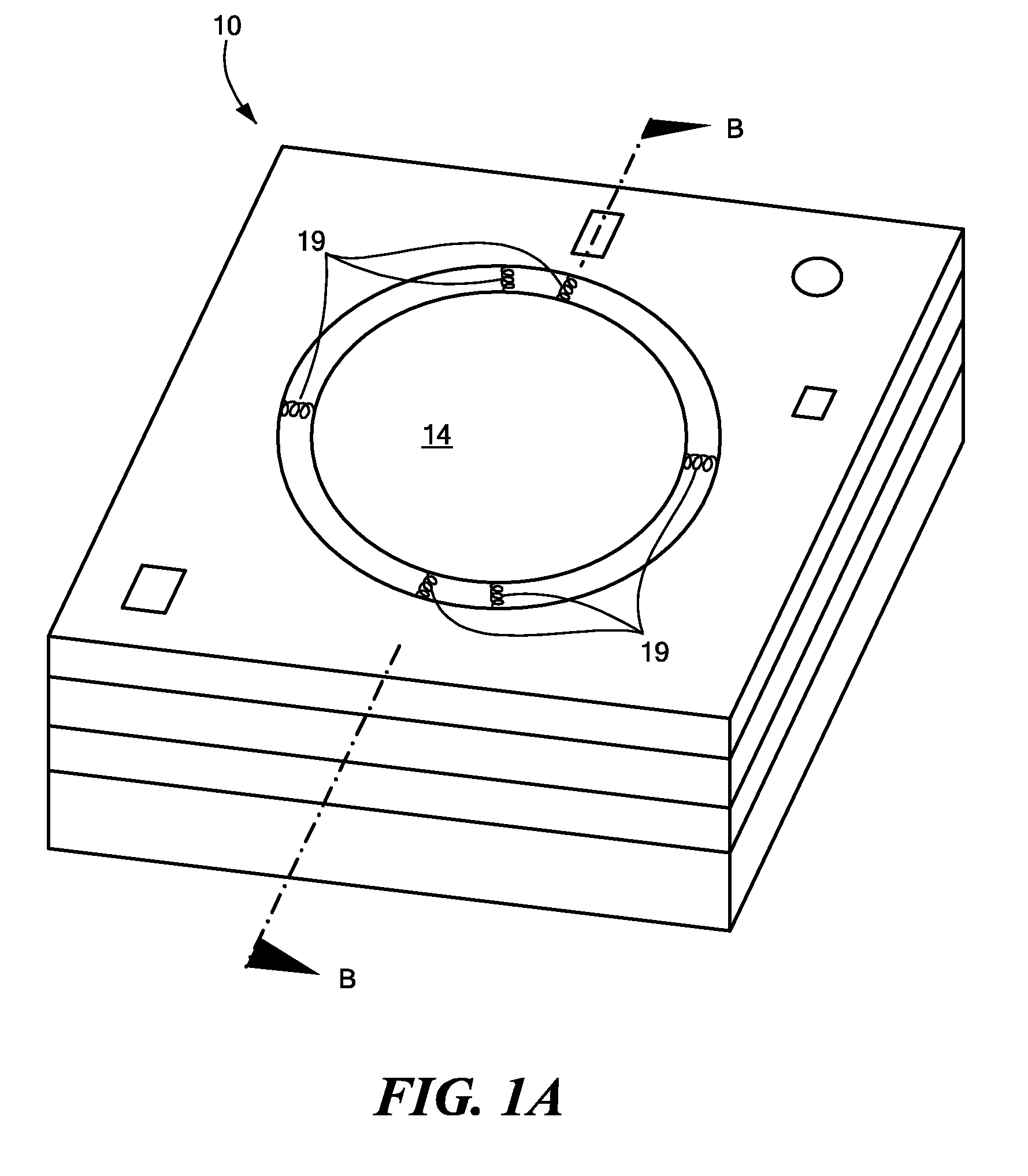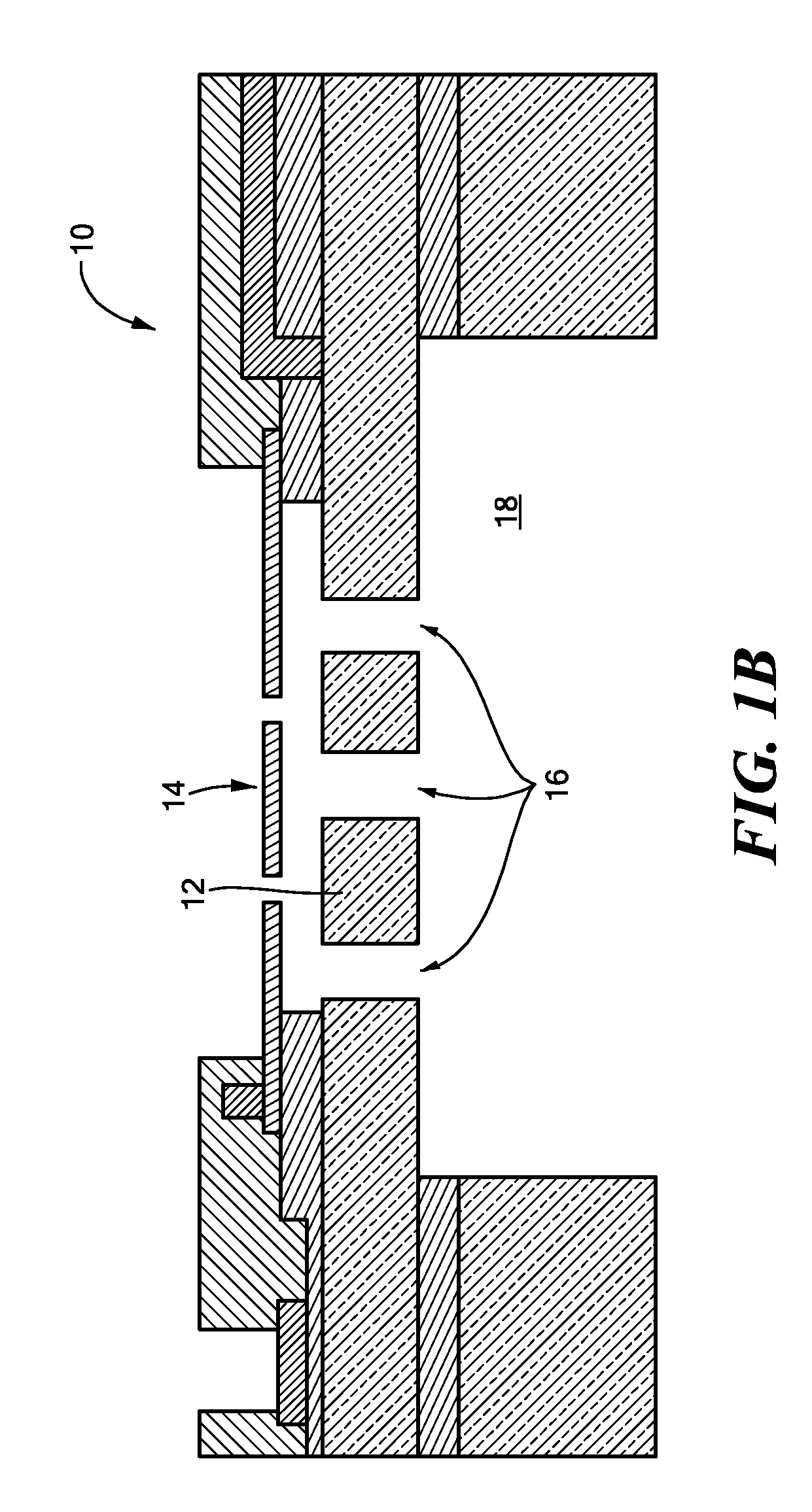MEMS device with surface having a low roughness exponent
a technology of roughness exponent and mems device, which is applied in the direction of deaf-aid sets, electrical transducers, transducer details, etc., can solve the problems of yield loss, reliability failure, yield loss, etc., and achieve the effect of reducing the effect of device performan
- Summary
- Abstract
- Description
- Claims
- Application Information
AI Technical Summary
Benefits of technology
Problems solved by technology
Method used
Image
Examples
Embodiment Construction
[0020]Illustrative embodiments of the invention reduce stiction problems in open package MEMS devices, such as microphones and pressures sensors. To that end, one or both of the opposing surfaces of the diaphragm and backplate have a plurality of surface features, such as peaks, ridges, valleys, and cavities, that minimize the wetting ability of a water droplet. These surface features effectively follow principles similar to those of the so-called “lotus flower effect.”
[0021]Specifically, various embodiments process the facing surfaces of one or both of the diaphragm and backplate to have a Hurst exponent (also known as the “roughness exponent”) that is less than or equal to about 0.5. Details of illustrative embodiments are discussed below.
[0022]FIG. 1A schematically shows a top, perspective view of a microphone 10 (also referred to as a “microphone chip 10”) that may be fabricated in accordance with illustrative embodiments of the invention. This microphone 10 is an example of an ...
PUM
 Login to View More
Login to View More Abstract
Description
Claims
Application Information
 Login to View More
Login to View More - R&D
- Intellectual Property
- Life Sciences
- Materials
- Tech Scout
- Unparalleled Data Quality
- Higher Quality Content
- 60% Fewer Hallucinations
Browse by: Latest US Patents, China's latest patents, Technical Efficacy Thesaurus, Application Domain, Technology Topic, Popular Technical Reports.
© 2025 PatSnap. All rights reserved.Legal|Privacy policy|Modern Slavery Act Transparency Statement|Sitemap|About US| Contact US: help@patsnap.com



